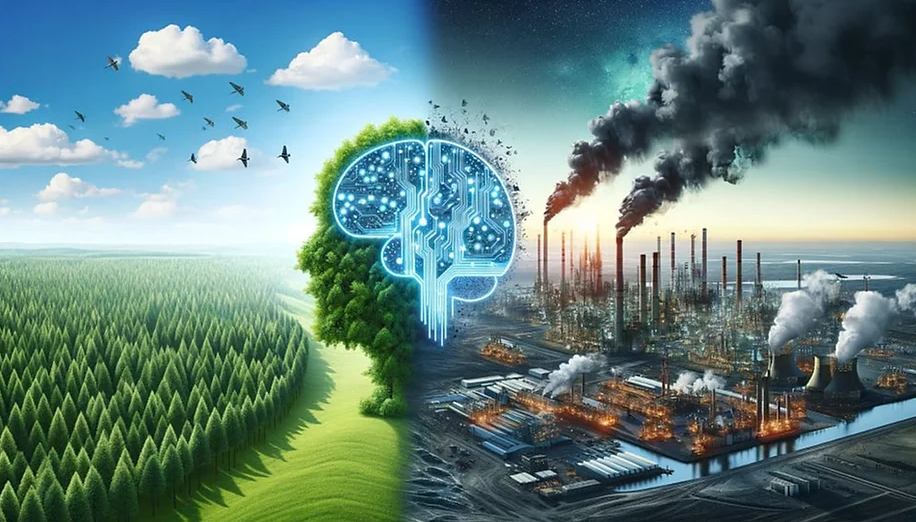
Artificial Intelligence: A Powerful Weapon in the Fight for Decarbonization
Climate change is the defining challenge of our generation. The need to transition to a low-carbon economy is no longer a debate, but an urgent necessity. Here’s where Artificial Intelligence (AI) emerges as a game-changer, offering a powerful set of tools to accelerate decarbonization efforts across various sectors.

Benefits of AI in Decarbonization
This section will demonstrate that utilizing AI’s advantages for decarbonization is a genuine, dynamic reality, not merely an ideal:
1. Optimizing Energy Systems
AI can analyze vast amounts of data on energy production, consumption, and weather patterns. This allows for the creation of intelligent systems that optimize energy grids. By predicting demand fluctuations and integrating renewable energy sources more effectively, AI can help reduce reliance on fossil fuels and ensure a stable, reliable energy supply.
By analyzing real-time data on energy production, consumption, and grid conditions, artificial intelligence systems may also anticipate demand patterns, identify potential disruptions, and dynamically balance the distribution of energy resources. With less waste and increased grid efficiency overall, this predictive capacity ensures that electricity is distributed more efficiently.
2. Smart Manufacturing and Green Logistics
Manufacturing processes are a significant contributor to greenhouse gas emissions. AI can optimize production lines, minimize waste, and identify opportunities for using cleaner materials. Additionally, AI-powered logistics systems can plan efficient delivery routes, reducing transportation emissions.
3. Revolutionizing Transportation
Self-driving cars powered by electric or hydrogen fuel cells are no longer science fiction. AI is crucial in developing autonomous vehicles that navigate roads safely and efficiently, potentially reducing traffic congestion and emissions.
4. Carbon Capture and Storage
AI can play a vital role in identifying optimal locations for carbon capture and storage (CCS) facilities. According to a study by the International Energy Agency (IEA), AI has the potential to reduce the cost of CCS by as much as 30% By analyzing geological data and simulating CCS operations, AI can ensure the safe and effective storage of captured carbon dioxide, preventing it from entering the atmosphere.
Challenges and the Road Ahead
Despite the immense potential, integrating AI into decarbonization strategies comes with challenges. The vast amount of data required for effective AI models can raise concerns about privacy and security. Additionally, ensuring equitable access to AI technology for developing countries is crucial for a truly global impact.
The Future of Decarbonization is Intelligent
AI is not a silver bullet, but it’s a powerful tool that can significantly accelerate our progress towards a decarbonized future. By harnessing the potential of AI, we can optimize energy systems, revolutionize industries, and empower sustainable practices across the board. As we move forward, collaboration between AI researchers, policymakers, and industry leaders is essential to ensure the responsible and ethical implementation of AI for a cleaner, more sustainable future for all.


